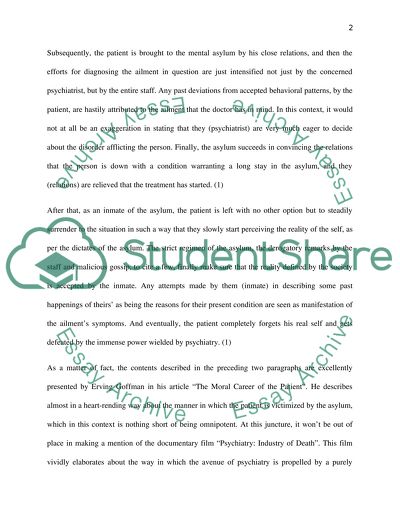Cite this document
(“Mental Illness and Individual Self Identity Essay”, n.d.)
Retrieved de https://studentshare.org/psychology/1390326-essay
Retrieved de https://studentshare.org/psychology/1390326-essay
(Mental Illness and Individual Self Identity Essay)
https://studentshare.org/psychology/1390326-essay.
https://studentshare.org/psychology/1390326-essay.
“Mental Illness and Individual Self Identity Essay”, n.d. https://studentshare.org/psychology/1390326-essay.


